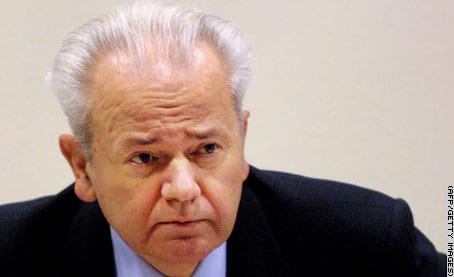Special—Introduction by Gaither Stewart
The Intellectuals’ Betrayal, an critical essay focusing on the Russian and global intelligentsia is by Aleksandr Tarasov, a leftwing Russian sociologist from Moscow of the caliber of, if not even superior to, Roland Barthes or Jean Baudrillard. It was originally published by The Greanville Post. I have excerpted this part below because it is directly related to a major theme in my latest novel, Lily Pad Roll: the crushing of Socialist Serbia and the theft of its province of Kosovo where a major U.S. military base was built: Camp Bondsteel. Tarasov’s fields of interest are wide-ranging, from Marxist theory to the phenomenon of the neo-Nazis in Russia. He was once ambushed at night by unknown assailants and so badly beaten he had to be hospitalized. Russian readers can read more about Aleksandr Tarasov at (http://saint-juste.narod.ru/shapinov.htm).
= = = = = = = =
The tyranny of the media was in full display during the Yugoslav warS of the 1990s. .

Serbia’s stubborn nationalist leader Milosevic: demonized by the Western media. Grotesque hypocrisy, considering the Western leaders’ own crimes.
The first Yugoslav war was justly called a “postmodern war,” but the second revealed the total dependence of the postmodern “cultural community” on the media, which were entirely under the control of those in power and no longer even masked their role as a brainwashing machine. NATO aircraft systematically destroyed the Yugoslav media precisely because they were not controlled by NATO and provided “incorrect” information – this was stated openly. Well-known American professors unanimously complained that not one publication wanted to print articles in which they criticized NATO, and television crews refused to interview them as soon as it became clear that they opposed the war in Yugoslavia.
The postmodern pseudo intelligentsia, moreover, has begun quoting Roland Barthes, repeating that “every discursive system is a presentation, a show”, although the Yugoslav example in fact refutes Barthes: it exemplifies the overt destruction of the show (the game). It is an example of how one discursive system destroys another – not linguistically, not according to Barthes, not through “aggressive dialogue”, but with missiles and bombs, eliminating dialogue and imposing monologue.
Both Yugoslav wars had economic causes, among others: the refusal of the ruling Socialist Party in Yugoslavia to privatize collective property and allow Western capital to buy up Yugoslav industry (altogether, only 7 percent of the Yugoslav economy is privatized, and in Serbia the figure is 4 percent). The Yugoslav leadership’s position can be explained in terms of the economic interests of the collective owners who are also the backbone of the Socialist Party, but the Western media said not a word about this, preferring to demonize one person, Milosevic. This is a deliberate dumbing-down of the viewer to the level of the benighted and illiterate Russian peasant of the early nineteenth century, who believed that Bonaparte was the Antichrist.— A. Tarasov
_____



